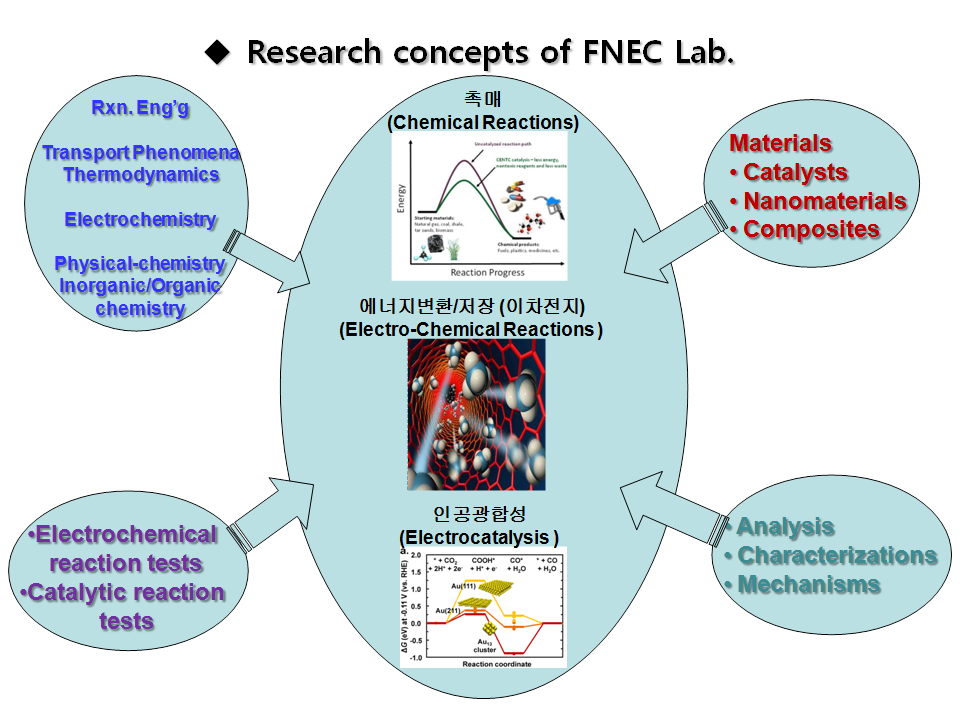|
||
|
||
|
||
|
||
| 연구실 소식 | ||
| Group News | ||
| 연 결 | ||
| Links | ||
|
||||
Research Interests of FNEC Lab.
1. Functional nanomaterials for Energy conversion/storage, Batteries/ESS (Li-ion & Li-Sulfur) and H2-ESS The technologies of energy conversion and storage via electrochemical reaction, such as rechargeable batteries, supercapacitors, fuel cell, are expected to play an important role in the foreseeable future due to their high efficiency and convenience in energy usage with much less impact on environment compared to the conventional technologies. The key technical hurdles could be overcome by developing advanced functional nanomaterials. Our laboratory has interests in designing such materials with modern and new synthetic techniques in nano-scale regime that the technologies become economically viable in near future. Our research interests are also lies in the development their hybrid systems to effectively make-up their technical drawbacks for high performance systems. Besides the electrical energy storage system via batteries (B-ESS), we are also interested in developing hydrogen storage technologies as an energy storage system called H2-ESS. For H2-ESS, we are focusing on the reliable hydrogen storage via catalysis.
2. Functional nanostructures for Catalysis One of the toughest challenges that we are facing now is to develop petroleum alternative routes for fuels and chemicals production in short time for sustainable future. To deal with such challenges, we need to develop revolutionary catalytic processes since conventional ones are thermodynamically unfavorable and highly intensive in energy use, or there is no technology available yet. Our research interests in this field are to develop new concepts in designing catalysts such that new catalytic solutions lead to highly efficient and selective technology with less concern of thermodynamics and with high selectivity and energy efficiency.
3. Functional nanostructures for Electrocatalysis Electrocatalysis, combining electrochemistry and catalysis fields, is becoming an attractive route for many challenging conversions including CO2 conversion for which conventional chemical conversion technology has limitation due to thermodynamics. With knowledges in electrochemistry, catalysis and functional nanomaterials, we are trying to device electrocatalysis systems to study electrocatalytic conversion of CO2 into useful chemicals.
4. For more information, please visit the websites below |
||
